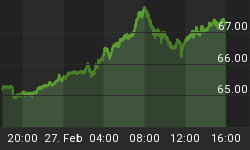A government-run pension fund manager - hardly fills you with confidence, does it...?
AS EVERY BRITISH ADULT well knows, the UK government long since forgot to save a penny of his or her lifetime's National Insurance contributions.
That makes British State pensions an unfunded government liability, with today's "investors" simply paying the "profit" on yesteryear's savings. Anyone else running this scam would be busted as a chain-letter Ponzi. But just as central bank money printers always evade forgery charges, so the government won't arrest itself for spending what they vowed to put by. And they have now decided it's time to get you to make up the difference by funding your retirement all over again.
Starting in 2012 your employer will take further deductions from your salary - a full 8% by 2017 - and dump the money into the National Employment Savings Trust (NEST - y'know, just like the egg, all fragile shell and gooey inside). Your employer will stump up a further 3% or more of your wages, also passing the cash straight to this new government-run pension fund manager. (That's hardly a phrase to fill you with confidence, is it?)
In the new scheme your money will apparently be saved and invested, rather than disappearing (as your National Insurance contributions have) into the bottomless pit of government expenditure. Oh yes, really.
Now, the trustees of NEST are all - no doubt - jolly nice people, and I think we can be fairly sure they won't run away with your cash. They will take every care not to do anything too silly or controversial. Such as, say, plugging 13% of your wealth into physical gold like the Dutch glassblowers union did. Perhaps the least controversial thing NEST can do is hold government bonds; then no one will slap their wrists, because such reckless caution is endemic in the pensions-fund business, and doing no better than the next guy is never a crime.
Besides, with the tsunamis of money bearing down on them month after month...a full 11% of gross UK wages...NEST are not going to have much choice. There simply isn't enough of anything else for them to invest in. And luckily there are plenty of government bonds. Last year the British government issued something like £160 billion of the things. That's about £3,000 for every man, woman and child in the country...a hell of a lot of bonds, and sadly there were nothing like enough natural buyers.
Despite what Brad DeLong might think, the free market of professional fund managers doesn't want all the gilts on offer. Because there's a very considerable risk that this huge and ongoing rate of bond issue will cause the bonds to inflate away to worthlessness. At least, that's the guess of history whenever a sovereign state has got close to the national debt levels reached by the UK - and if you won't listen to history, then just what will you heed instead?
With gilt prices thus threatening to weaken, in 2008 the UK authorities dreamt up a fantastic wheeze to create a false market in their own bonds in a way which would - again - land the rest of us in jail. Make the nationalized, notionally independent Bank of England print new money to buy ever more of these bonds, thereby artificially holding up their price!
This, as a reminder, is called Quantitative Easing. And it's why the Bank of England is now, with £198 billion worth, the world's No.1 holder of British government gilts. Trouble is, the Bank would rather retain that veneer of independence...and hasn't actually bought any more gilts since January. Reversing QE would mean selling those gilts - but with a further £169bn of new gilts also coming to market this financial year to fund the coalition government's newly "austere" spending plans, where in the hell would the Bank of England find a buyer...?
We'll ask again: Where would the Bank find a buyer for its pile of government debt?
Look, it's not malicious, it's just lazily convenient. The Bank of England is looking for an "exit strategy" for its vast pile of gilts at just the same time as the government is forcing wage-earners to pay yet again for their State-mandated pension. NEST could very happily play the part of buyer in this chucklesome skit. Hell, it would clearly obey its own "Lower Risk Fund" mandate by taking "very little investment risk" in a way which "may not protect against inflation over the long term" by filling its boots with UK government bonds.
But for you? £1,000 in today, £1,000 out in 2035. Never mind that all it might buy you by then is a sandwich.
Okay, sure - employees will be free to opt out of NEST. But the trust's own research shows that most people won't. More comically still, British employers are forbidden by law from encouraging their staff to opt out, even though it is the worker's legal right to do so.
Never mind though. Handing the State yet more of your earnings to set aside for your pension cannot really end badly, can it? Because if it does hit any hiccups - such as, say, the part or whole seizure recently seen in Hungary, Poland, Bulgaria and France - you can always get tapped for a third scheme, just to keep things ticking over.















